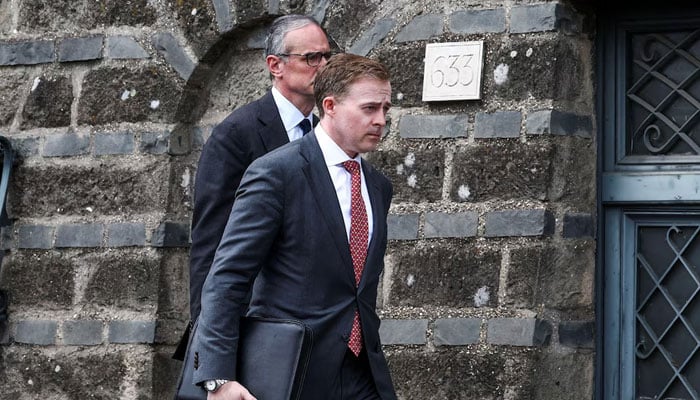
- Iran, US to discuss nuclear standoff in Rome.
- Differences over uranium enrichment put fate of talks in balance.
- Iran says it will hold US responsible for any Israeli strikes.
DUBAI: Iranian and US negotiators will resume talks on Friday in Rome to resolve a decades-long dispute over Iran’s nuclear ambitions, despite Tehran’s supreme leader warning that clinching a new deal might be insurmountable amid clashing red lines.
The stakes are high for both sides. President Donald Trump wants to curtail Tehran’s potential to produce a nuclear weapon that could trigger a regional nuclear arms race. The Islamic Republic, for its part, wants to be rid of devastating sanctions on its oil-based economy.
Iranian Foreign Minister Abbas Araqchi and Trump’s Middle East envoySteve Witkoff will hold a fifth round of talks, through Omani mediators, despite both Washington and Tehran taking a tough stance in public over Iran’s uranium enrichment.
Although Iran insists the talks are indirect, US officials have said the discussions – including the latest roundon May 11 in Oman- have been both “direct and indirect”.
Araqchi, who arrived in Rome with his two deputies, wrote on X: “…Zero nuclear weapons = we Do have a deal. Zero enrichment = we do NOT have a deal. Time to decide”.
White House press secretary Karoline Leavitt told reporters on Thursday that Trump believes negotiations with Iran are “moving in the right direction”.
Tehran and Washington have both said they prefer diplomacy to settle the impasse, but remain deeply split on several red lines that negotiators will have to circumvent to reach a new nuclear deal and avert future military action.
US Secretary of State Marco Rubio said on Tuesday that Washington is working to reach an accord that would allow Iran to have a civil nuclear energy programme but not enrich uranium, while admitting that achieving such a deal “will not be easy”.
Supreme Leader Ayatollah Ali Khamenei, who has the last say on Iran’s state matters, rejected Washington’s demands that Tehran stop refining uranium as “excessive and outrageous”, warning that the talks are unlikely to yield results.
Among remaining stumbling blocks is Tehran’s refusal to ship abroad all of its highly enriched uranium stockpile – possible raw material for nuclear bombs – or engage in discussions over its ballistic missile programme.
Iran says it is ready to accept some limits on enrichment, which it maintains is for civilian nuclear energy uses only – but needs watertight guaranteesthat Washington would not renege on a future nuclear accord.
Trump, who has restored a “maximum pressure” campaign on Tehran since February, ditched the 2015 nuclear pact in 2018 during his first term and reimposed sweeping US sanctions that continue to hobble the Iranian economy.
Iran responded by escalating enrichment far beyond the 2015 pact’s limits.
Wendy Sherman, a former US Undersecretary for Political Affairs who led the US negotiating team that reached the 2015 agreement, said it was impossible to convince Iran to scrap enrichment – which Tehran touts as a matter of sovereignty.
“I don’t think it is possible to get a deal with Iran where they literally dismantle their programme, give up their enrichment, even though that would be ideal,” she told Reuters.
The cost of failure of the talks could be high. While Tehran says its nuclear activity is for peaceful ends, Iran’s arch-foe Israel discounts this,saying it would never allow Iran’s clerical establishment to obtain nuclear weapons.
Israel’s strategic affairs minister and the head of its foreign intelligence service Mossad will also be in Rome for talks with the US team that is negotiating with Iran, a source aware of the matter told Reuters.
Araqchi said on Thursday Washington would bear legal responsibility if Israel attacked Iranian nuclear installations, following a CNN report that Israel might be preparing strikes.
While rising US-Iran tensions over enrichment have put the nuclear talks in doubt, three Iranian sources said on Tuesday that the clerical leadership lacks a clear fallback plan if efforts to overcome the standoff collapse.